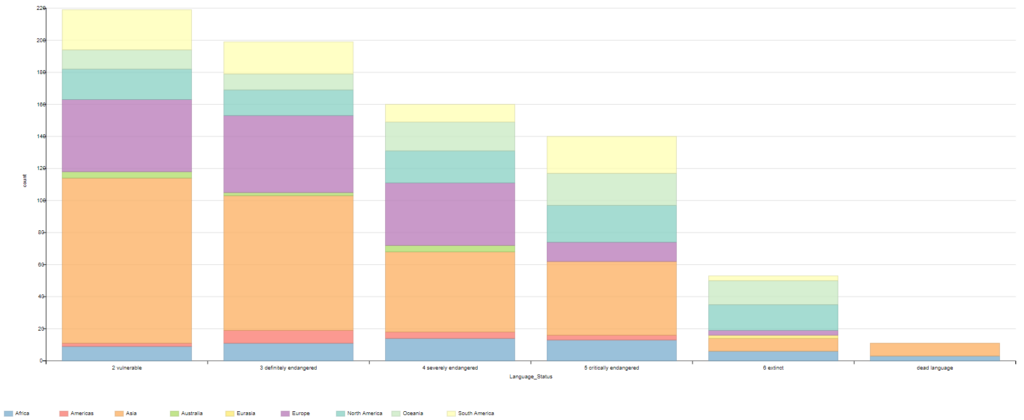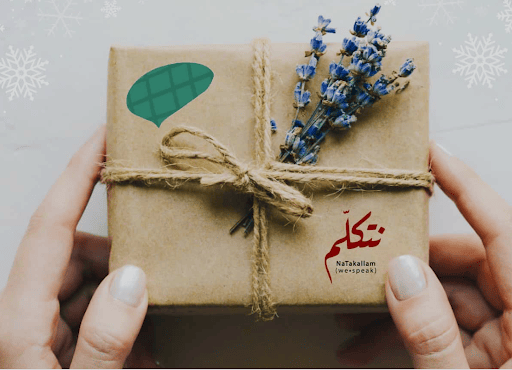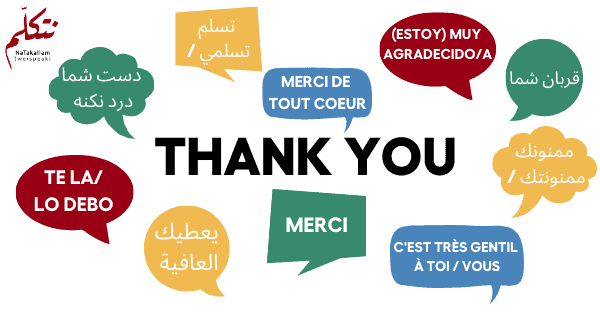Language Endangerment and How to Fight It
In a world characterized by linguistic diversity, each language serves as a unique expression of culture, identity and heritage. However, the numbers of speakers of some languages are declining; these “mother tongues” are not being taught anymore. When this happens, the language becomes “endangered.” These endangered languages are at risk of disappearing forever, taking with them centuries of cultural wisdom, knowledge and tradition. Happily, we now have a better understanding of how and why this happens and what we can do to prevent it.
Sometimes it is debatable whether a language is actually endangered or not, as this topic is studied by different branches of social science such as linguistics and anthropology, and the experts don’t always agree. However, there are common characteristics and guidelines to identify vulnerable languages. Being informed on this topic is important to help us all work to preserve the cultural heritages these languages are associated with.
The languages that we often classify as “endangered” are often spoken by indigenous or minority communities around the globe, and they are at risk of disappearing as their speakers either pass away or transition to using other languages that have higher prestige, more social advantages (such better job or migration opportunities) or are imposed or favored by a government, institution or educational system. The next generations become bilingual, speaking both the community language and the favored language, but at some point they tend to pass on only the favored language to their own children.
When a language no longer has any native speakers, it is considered a “dead language.” If this language is not spoken even as a second language, it is classified as an “extinct language.” Even if a dead language is still studied through recordings or written materials (as for example with Latin or Ancient Greek), it is still considered extinct unless there are proficient speakers. While there are over 7,000 languages in the world today, experts expect 1,500 of them to be gone by the end of this century.

While languages have always been dying through human history, the current rate of decline has accelerated due to factors such as globalization, mass migration, cultural assimilation, imperialism, (neo)colonialism, and linguicide — the intentional suppression or eradication of a language. It is estimated that 45% of the world population speaks one of only a handful of “majority” languages, such as English, Spanish or Chinese. The rest of the population speaks “minority” languages; these are not necessarily endangered (many of them aren’t), but the numbers certainly put things into perspective.
Ethnologue is the go-to resource for linguists looking for speaker statistics of all the world’s languages (it also demonstrates the familial relationships between languages). UNESCO also has multiple projects documenting the languages of the world, such as the World Atlas of Languages, and it also has an atlas which focuses specifically on vulnerable or endangered languages; so does Google, with the Endangered Languages Project. Here you can find information and resources on endangered languages divided by country, but you can also find materials and resources written or spoken in these languages.
To get a better idea of what makes a language endangered, let’s consider the cases of two NaTakallam languages: Western Armenian and Kurdish.
Western Armenian is one of the two main varieties of the Armenian language (the other is Eastern Armenian; both dialects are offered by NaTakallam). Despite sharing a nearly identical vocabulary, the notable disparities in pronunciation and grammatical structures between the two variants are substantial enough to make an argument that the two varieties are different languages—though they are mutually intelligible. Western Armenian is based on the dialect spoken by the Armenian community living in present-day Turkey—a population which declined sharply due to its genocide and forced displacement by the Ottoman Empire in 1915.
The language today is spoken mainly by the Armenian diaspora living in Turkey, Georgia, Lebanon, Iraq and the United States, but being a “diaspora language” puts it in danger, as people are more inclined to speak and pass on the language of the country they are living in. Turkey has recognized Armenian as a minority language with certain rights since the Treaty of Lausanne in 1925, but the degree to which this treaty meets modern international standards for minority language rights has been disputed. Armenian within Armenia, of course, is not endangered, but it is the Eastern Armenian variety which predominates in this country.

Another vulnerable language offered by NaTakallam is Kurdish. Like Armenian, debate exists over whether Kurdish can be considered one language or a group of related languages; its various dialects are often not easily mutually intelligible. Only Zazaki is unanimously considered to be endangered, but while Kurdish is spoken in Turkey, Iraq, Syria, Iran and beyond, it is only recognized as an official language in Iraq, and this is the only country where Kurdish-language education is available. Since the Kurdish population faces different degrees of discrimination across the countries in which they live, the language can’t always be spoken freely by its community.
Luckily, language decline can be reversed; if enough people are interested in the culture and in the language itself, it can be revitalized. Many people with an immigrant background or from minority communities take an interest in their roots and want to know more about the language their parents or grandparents spoke, so they teach themselves or engage in other efforts to revitalize a language. Such revival efforts are still ongoing everywhere in the world for various languages, and it’s too soon to say whether or not they will take off, but any community that takes an interest in keeping its culture alive has definitely taken the first step to success.
So what can you do to prevent language death? Get involved in the topic; support the projects that are researching and cataloging endangered languages; and—why not?—learn an endangered language yourself. At NaTakallam you can learn Armenian (both Western and Eastern), two varieties of Kurdish (Sorani and Kurmanji), as well as many other languages such as French or Arabic.
If you’re interested in learning more about endangered languages in general, we recommend you check out The Green Book of Language Revitalization in Practice and Sustaining Linguistic Diversity.
ABOUT THE AUTHOR: Alice Zanini is a copywriting intern at NaTakallam. She is currently pursuing her bachelor’s degree in linguistics and Middle Eastern studies. Her research focus is on sociopolitical and sociolinguistic issues in modern Turkey and the Persian-speaking world.
ABOUT THE AUTHOR: Mikaela Bell is a freelance editor and content writer with a background in anthropology and linguistics. An American based in France, she is also fond of reading, cooking, studying languages, fibercrafts and Irish stepdance.
Language Endangerment and How to Fight It Read More »






























